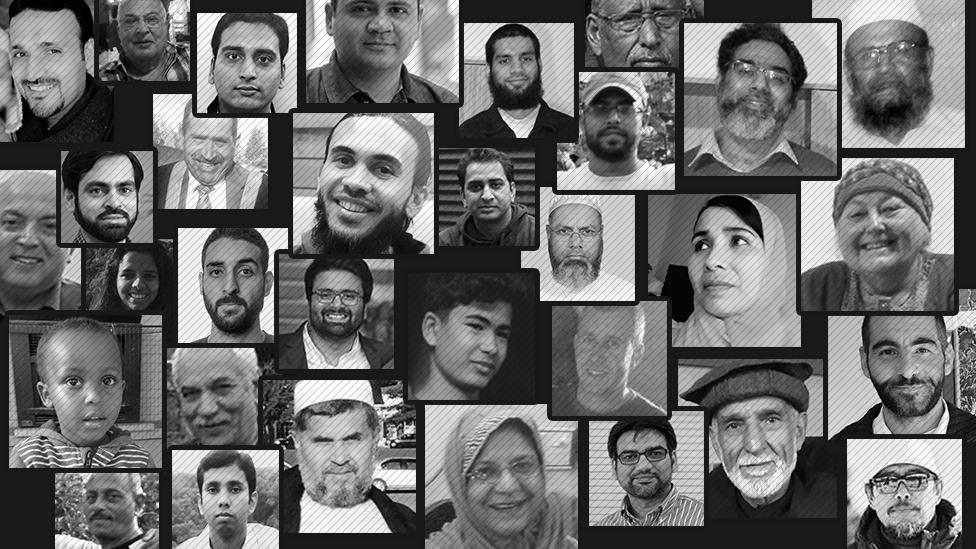Christchurch attacks: NZ suspect ordered to undergo mental health tests
- Published
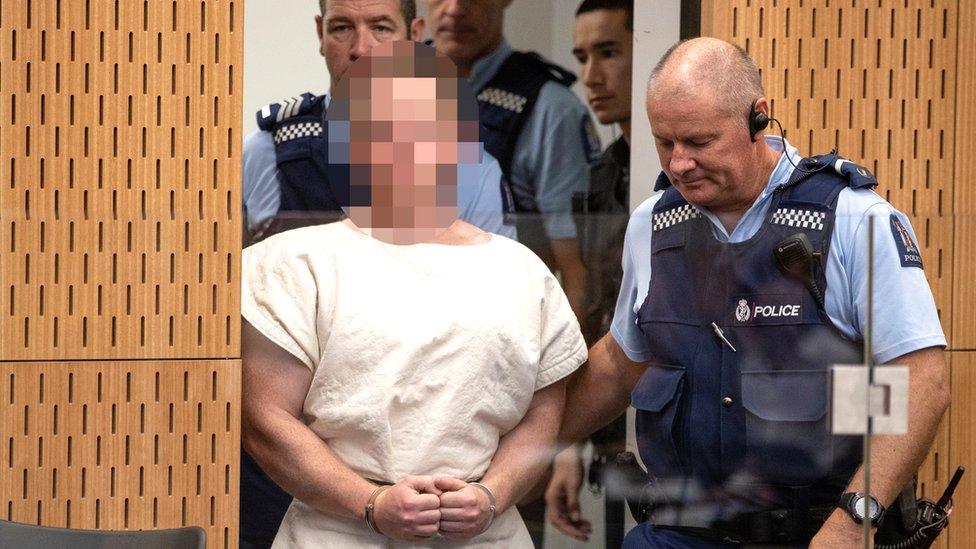
The suspect made an earlier court appearance in March (file photo)
The man accused of killing 50 people in last month's attacks on two mosques in Christchurch, New Zealand, has been ordered to undergo mental health tests.
He would be seen by experts to decide if he was fit to stand trial or insane, said high court judge Cameron Mander.
The suspect faces 50 murder charges and 39 attempted murder charges.
Australian Brenton Tarrant, 28, appeared in the courtroom - packed with relatives of some of the victims - via video link from prison.
He was not required to enter a plea.
It is the deadliest mass shooting attack New Zealand has ever seen.
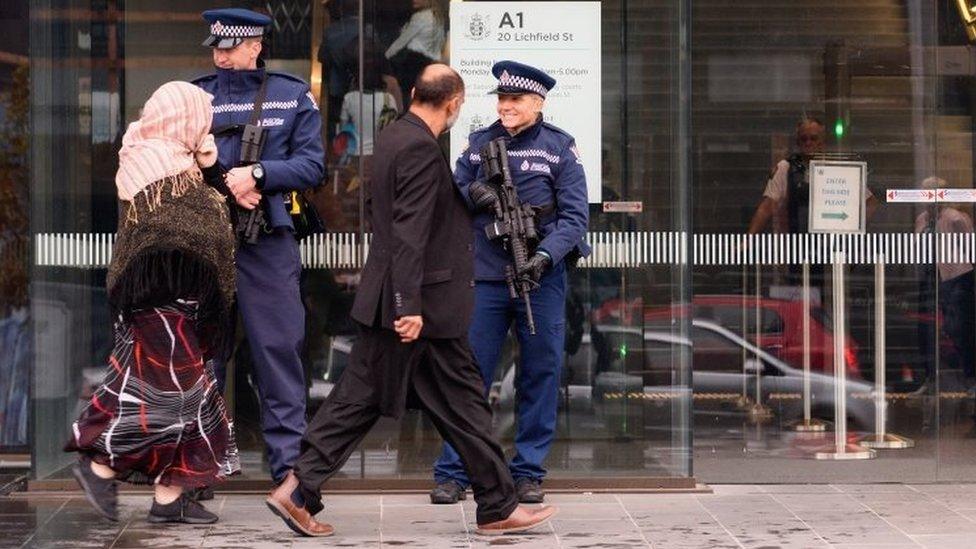
Members of Christchurch's Muslim community attended the court hearing
New Zealand Prime Minister Jacinda Ardern called it one of New Zealand's "darkest days".
She has vowed to ban all types of semi-automatic weapons and assault rifles.
What happened in the court?
On Friday morning, Judge Mander ordered that two assessments would be carried out to determine the state of the suspect's mental health.
The suspect listened intently during the short court hearing. He made no comments.
The suspect was able to see the judge and lawyers and hear the proceedings - but the camera was turned away from the public gallery.
The judge remanded him in custody, and his next court appearance is now due on 14 June.
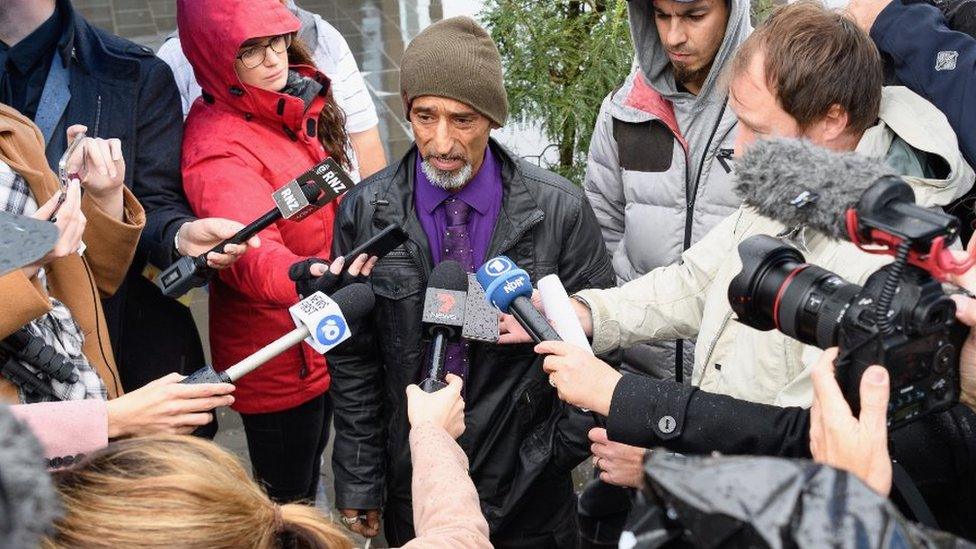
Omar Nabi who lost a relative in the attack was at the court
Omar Nabi lost his father in the attack on the Al Noor mosque. Speaking to reporters outside the court he said "we don't want to kill him. We want him to suffer here".
"We want him to be punished, you know, a punishment for a crime of killing 50 people and injuring how many."
Tofazzal Alam who survived the attack on the Linwood mosque also spoke to reporters outside the court.
"I lost 50 friends whom I use to see in the mosque every Friday. And during the shooting, I couldn't see him. I want to see how he feels after killing 50 people, so that's why I'm here today."

Victims of the Christchurch shootings
Fifty people lost their lives in the shootings at two mosques in the city.
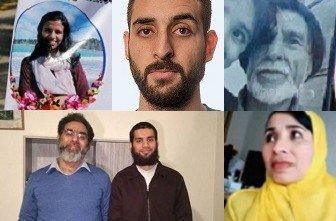

How did the attacks unfold?
The suspect was arrested on 15 March for his involvement in the shootings at the Al Noor mosque and the Linwood Islamic Centre, both located in Christchurch.
He had allegedly first driven to the Al Noor mosque, parked nearby and began firing into the mosque as he walked in through the front entrance.
He allegedly fired on men, women and children inside for about five minutes. He live-streamed the attack from a head-mounted camera and identified himself in the footage.
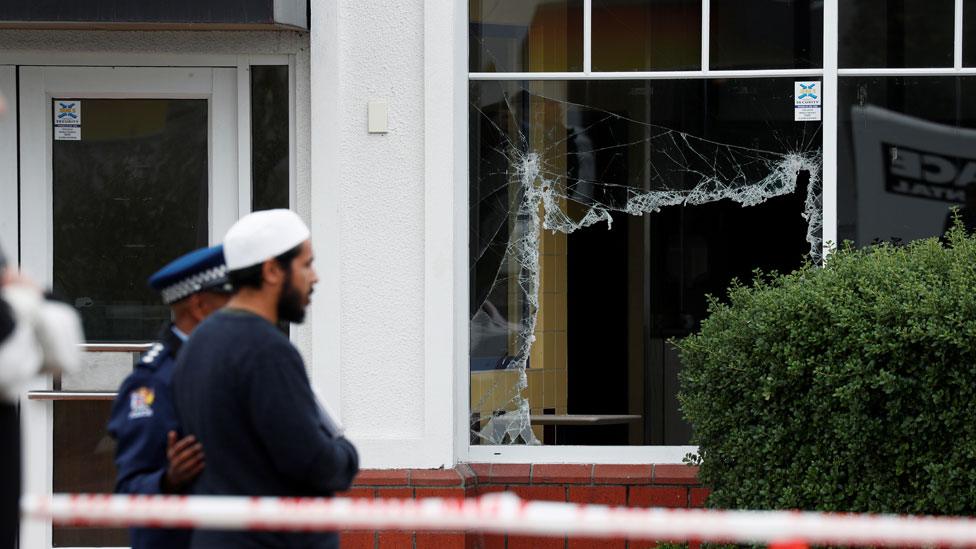
Smashed windows at Linwood Mosque
The suspect is then said to have driven about 5km (three miles) to the Linwood mosque where the second shooting occurred.
The gunman, armed with semi-automatic rifles including an AR-15, is believed to have modified his weapons with high-capacity magazines - the part of the gun which stores ammunition - so they could hold more bullets.
He is currently being kept in isolation at the Auckland Prison in Paremoremo, considered New Zealand's toughest.
How has New Zealand responded?
Less than a week after the attacks, Ms Ardern announced that New Zealand would ban all types of semi-automatic weapons and assault rifles.
She said she expected new legislation to be in place by 11 April.
An amnesty has been imposed so the owners of affected weapons can hand them in, and a buy-back scheme will follow.
Many in the country are still coming to terms with the mass killings.
More than 20,000 people had earlier last month attended a memorial service honouring the 50 victims of the shootings.
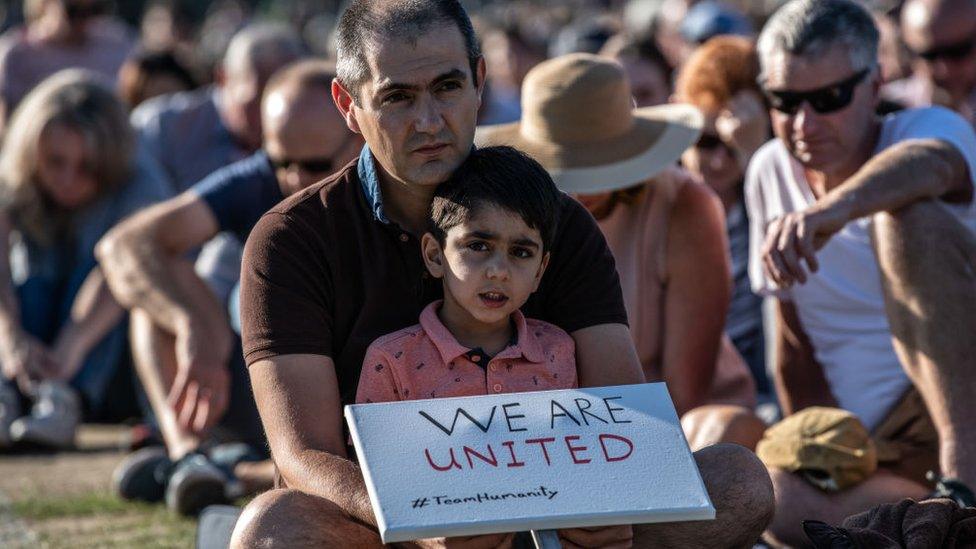
Thousands turned up to a vigil in remembrance of the victims
All 50 names of the victims who died in the attacks were read out at the event by members of the city's Muslim community.
The victims included men, women and children from across the world. The youngest victim was just three years old.
- Published20 March 2019
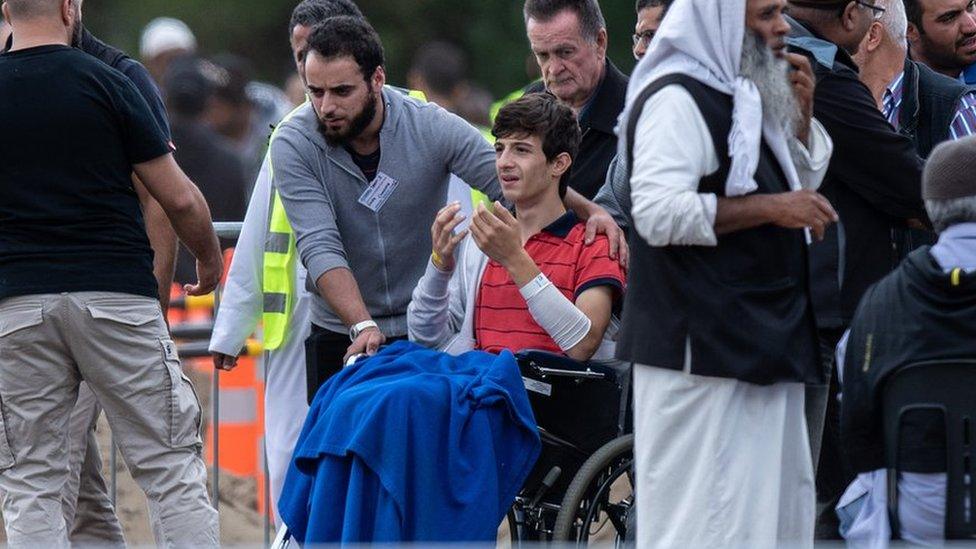
- Published16 March 2019
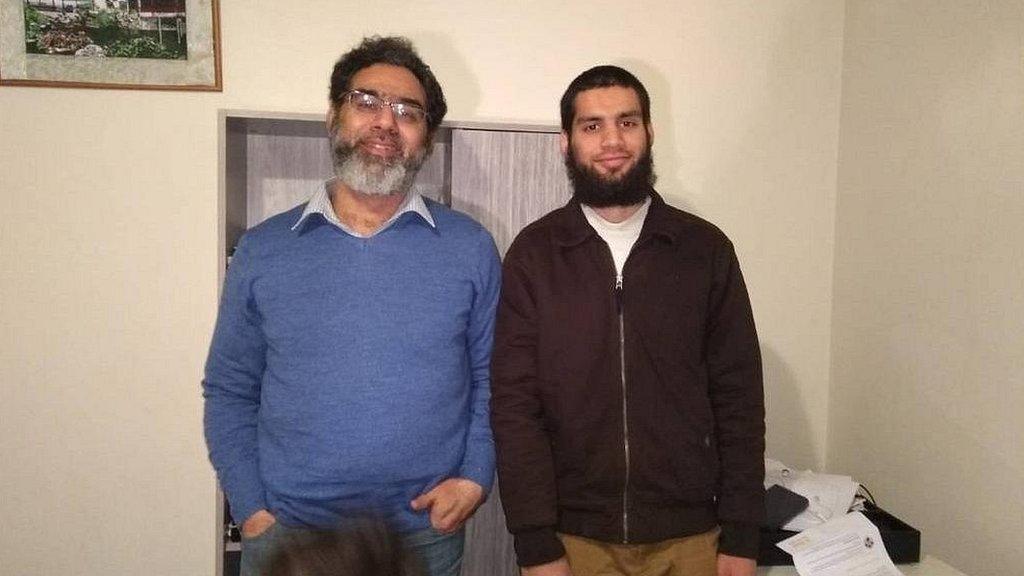
- Published18 March 2019

- Published21 August 2020
